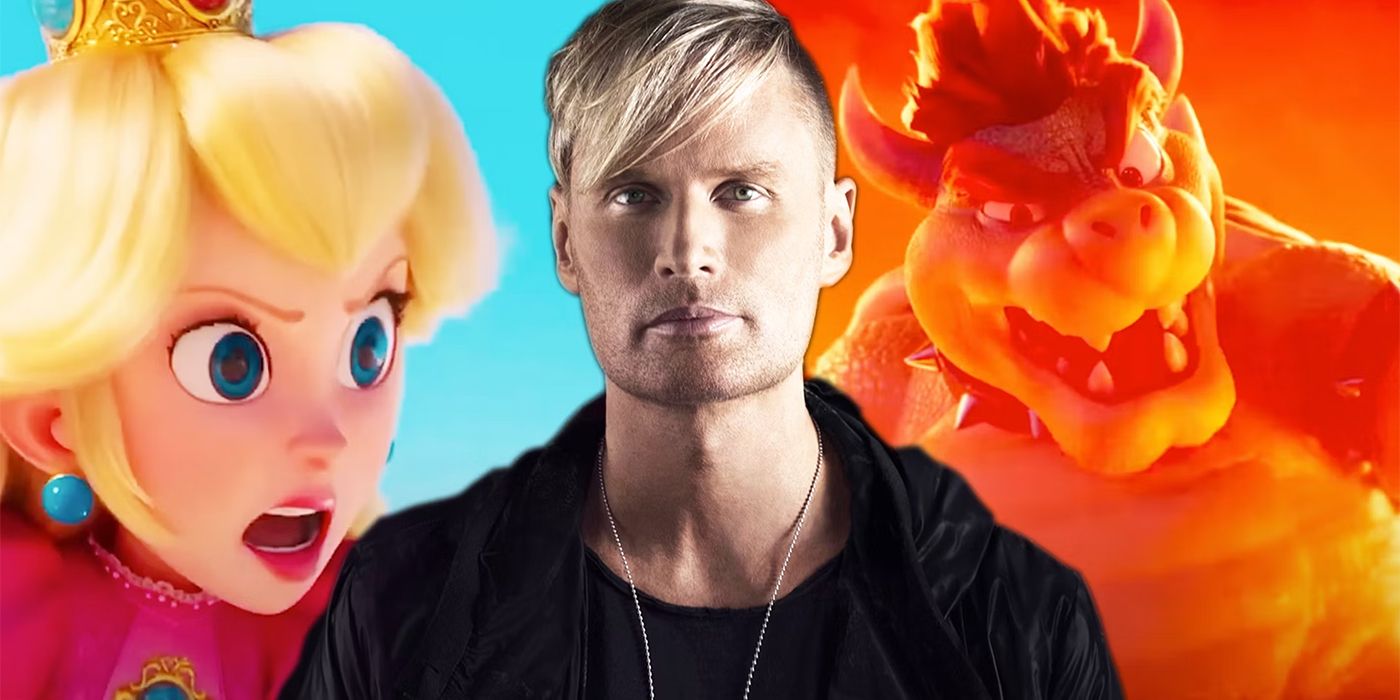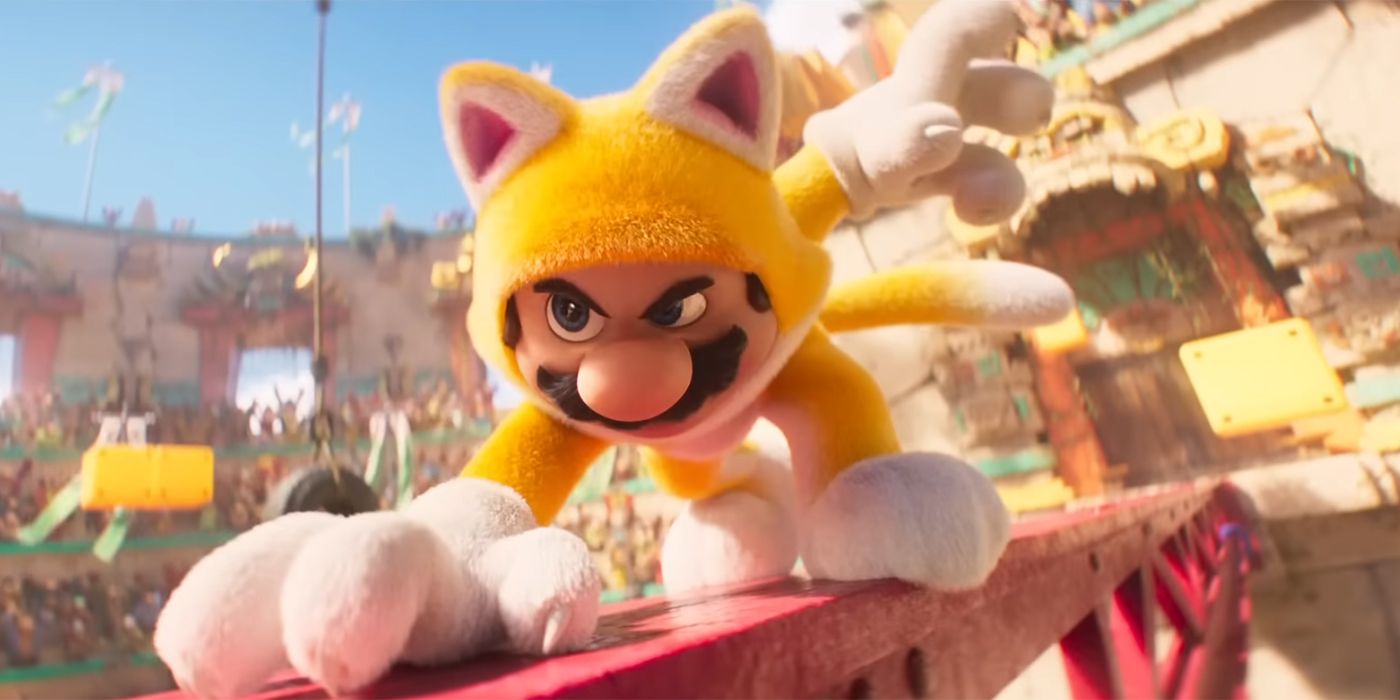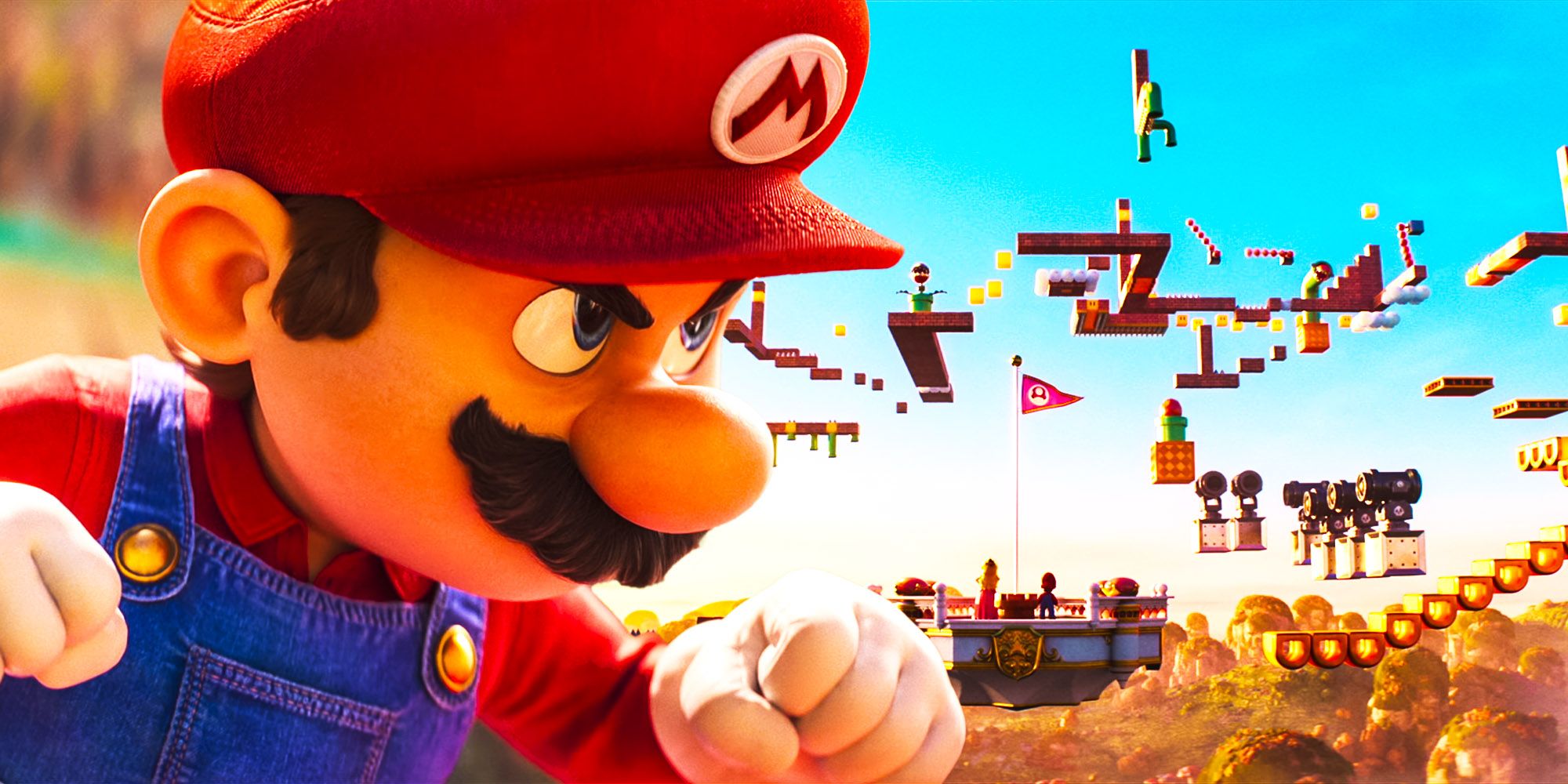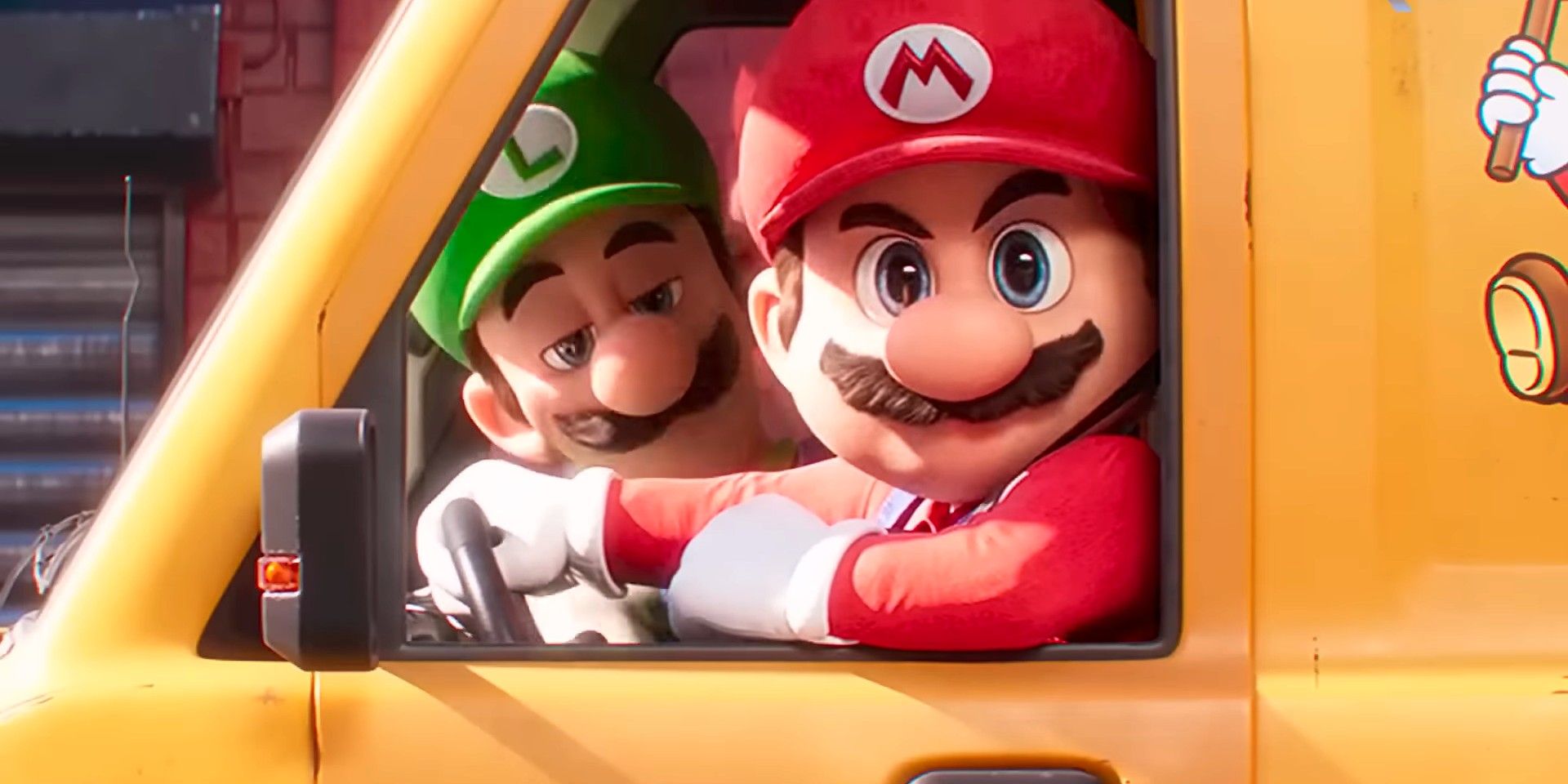Brian Tyler was one of the busiest composers of the modern film industry even before he took on the massive undertaking that is The Super Mario Bros. Movie. Tyler is well-known to be one of the best action movie composers of all time, having contributed music to the Fast & Furious franchise, Avengers: Age of Ultron, and more. Tyler has recently taken huge steps into creating immersive audio experiences for live performances as well, composing genre-bending suites of music for Awakening, a massive show at the Wynn Las Vegas (for which the soundtrack is now available), and Are We Dreaming, an audio-visual experience of Tyler’s own creation.
For The Super Mario Bros. Movie, Brian Tyler has seemingly gone deeper than ever down the warp pipe of musical Easter eggs, even while crafting his own themes to add to the iconic work of Mario composer Koji Kondo. In this interview, Tyler mentions deep soundtrack cuts from Mario games past that he brought to life in a new way, on top of the themes that so many know and love. On top of everything we know about The Super Mario Bros. Movie, the clear love for the Mario games that Tyler professes makes the film’s imminent release even more exciting.
Brian Tyler spoke with Screen Rant about the depth of his creative process on The Super Mario Bros. Movie, his bevy of other projects, and more.
Brian Tyler on The Super Mario Bros. Movie
Screen Rant: I have a lot to ask you about Mario, but I got to go to Awakening in Las Vegas. How different was it writing music for theater, especially having to give the actors some sense of agency? Was it closer to doing a video game, almost, than a film?
Brian Tyler: It was the closest thing to, really, doing a musical. The way that Awakening worked was that we had this idea of the story. The way I was brought on was [the creative team's] interest in my work on Are We Dreaming, which actually isn't out in the public yet, but which is this really immersive, experiential story that has music that covers a wide array. [It has] everything from world music, to score with orchestra, [to] choir, to hip-hop and electronic music. Everything that I am and that I love about music is in there. Are We Dreaming is the thing that pushed me into this and made it a reality.
[It's] a story that is done live with choreography, and dancers, and sets, and a story about magic, and light and darkness. We had this outline, scene-by-scene, of what would happen, but these scenes were really dictated by the music and the choreography. So much of this was done through dance and interpretive acting, [with] very, very, very, very little dialogue, so it could translate to the world; it was a borderless kind of thing that we want to [be able to] translate across cultures.
I [would] get an outline [saying], "IO," the main character, "is going to be searching for something, and then a magical thing happens. Then, there's a trap set, and then she overcomes it, and there's a reunion." It was like that. I would work that out, not only as they were on a big whiteboard, but also [in] talking to the costume designer about what these costumes would be like, and how they were designing the sets. The whole theater moves, and the stage is moving, so all of these were taken into account.
Then, I would write the music first, and they would work around it. The choreography would be done, and the story would mold to it, and then I'd go in there and make some tweaks. Really, it was like a music-first, music-centric project that, to me, was most like a musical. There is singing and whatnot in it, but it's mostly instrumental-driven music from all sorts of genres. It really is very modern, and very assertive, and all about the emotion and getting you from point A to point B; [it takes you from] the beginning of time, of the birth of light and dark, to this unbelievable finale.
I was working almost in the dark, where I would write music for these long pieces with all these [dramatic] twists and turns, knowing what all the story points had to be. Then, they would choreograph around it. It was amazing. It was almost like inverse of doing a film, because you do the music first with this, and then they work aorund it. With a film, I watch the film, and I'm composing music to hit exact [moments]. This is creating the moments, which is the same thing as Are We Dreaming. I did the music first and then all these insane visuals were created around that, not unlike a modern day Fantasia, or a 2001: A Space Odyssey kind of thing.
And there are speakers by your head in every seat in that theater. Did you have to do anything differently to accommodate that?
Brian Tyler: That system, the binaural sound system that is specific to that theater, only exists in that theater. That whole system, the software and the speakers themselves, were developed from scratch for the show. We were doing prototypes that were, like, these things all screwdrivered in. [The goal was] to do it so it was invisible, sonically, where you don't notice that there's sound [by your head].
It takes the music [in the theater] and it passes it by your head. Or you can drop reverb out of something; even if it's a sound that has no reverb, be it a voice narration, a snare drum, or anything, your brain calculates, "I'm in a huge venue," so your brain is going to think [certain elements] have natural reverb. Sometimes we wanted to place sounds musically as if you were just thinking them.
It's doing the impossible physics of a big snare drum, or a voice, or something that you hear. And because it's [by your head] - you don't even realize it's coming from [there] - it just translates so it's inside your head. [It's] almost as if your brain is having a duet with the sounds that are in the room. It's a really unique psycho-acoustic experience that has never been done, and when you're in the theater, you have an experience that you can't take home with you. Yu really need to be there and experience it there at the theater, which was built specifically for us at the Wynn. It's permanent; there's no other show there. It is specifically just for Awakening.
You've done so many projects based on IP, and worked in huge franchises, but everyone in the world knows Mario. What was it like coming into the project, and was there anything you looked at as you started working?
Brian Tyler: Oh gosh, where do I start? I've played Mario pretty much since before Mario was Mario. It was Donkey Kong, you know? It goes all the way back to the N64 Mario Kart on, and on, and on through the games. I game now. I've seen all the iterations of it; the story of Mario and Luigi, and Princess Peach, and Bowser and all that is just in my DNA.
Of course, there was a Mario movie once before that was a live action thing that didn't really work out for the fans or whatnot; it wasn't that kind of thing. This was something [where] everyone from top to bottom wanted to do it, that would be in service to what the franchise deserves and what the fans, including every single filmmaker on this project, would love. But also, [we wanted to] bring it into a new world. There are hundreds, I think, of references in my music that reference the game, but it is an original score. It has its own Super Mario Bros. Movie theme and everything.
Koji Kondo, the original writer of this music, who I adore and am friends with, was a big part of this. I would talk to him back and forth: "Okay, what about this? What do you think if I did this for this?" because I wanted to incorporate things. Sometimes it's invisible, [or] just like an Easter egg. The harp might be doing a line from the select screen on Mario Kart that only happens when you're in the waiting room. There's a part [in the movie] where Mario and Luigi are in a waiting room, and I thought it'd be cool [if] within the score that's actually a mystery score, you hear the harp playing the waiting room music. I wanted to completely dive in and make [the film's music] a feast for people that watch it 1,000 times, or Mario fans, but [ensure it] also works on a dramatic level.
This score is big. It's orchestral, it's got choir, and it's got bands, it's got Italian instruments, accordions, live drums, mandolins, and whistling human voices. Also, I'm using eight-bit [sounds]. I'll be playing the drums, and all of a sudden the tom fill is just eight-bit tom fills. It's really eclectic, but at the same time, the goal was that it would work on a level that a score like [John Williams' score for] E.T. [does]. It has a transcendent nature; it is not limited by the polyphony you have on an eight-bit thing. It's not just porting over melodies from a game to a movie. It had to be so much more to capture what this film is.
[To me] this film is, lovingly, the realization of what was in any kid's mind playing Mario, and what they imagined it to be. When you're playing those games as a kid, or even growing up, you're not looking at it going like, "Oh, this is an eight-bit, 16-bit [game]," or whatever you're looking at. You're in it. Your brain makes up the difference.
If you watch someone playing a game, and you don't know the game, you're like "Whatever." In their mind, it's like an adventure, and the Rainbow Bridge has light coming up, and you're going upside down, and that's what the movie does. It is a realization of what we all saw on our minds. [It's the] same with the music. I wanted to be very respectful and a credit to where it came from, but also take it into that epic, huge, beautiful, colorful world that the movie is.
Is there anything that Koji Kondo requested be in the score?
Brian Tyler: It wasn't a request so much as when I started writing, it was a conversation that went back and forth from the very beginning. Before I started writing, we talked. The first time wasn't in person, it was over Zoom, and we talked a lot about things. Shigeru Miyamoto, the guy who created [Mario], was on these calls [too]. I'm friends with him, now; it's crazy. I actually had gaming magazines that had him in it, so I know them outside of this.
My whole career is working with either musicians, or actors, or directors that either grew up idolizing or I have respect for. [This] was another one of those really surreal things, because I never ever ever thought, when I [was] reading about Mario as a kid, that somehow I'd actually be working with the people. It's even crazier than thinking, "Maybe I'll work with Steven Spielberg someday," which I did. This is so far removed from my universe, so it's really cool.
When [Kondo and Miyamoto] were out here, we were at Skywalker Sound doing the mix, and they love the score and the new music I did. I was so nervous playing [the music for] them. [I] did this, like, 15-minute suite of all these new themes I felt would bring you into the world. Their reaction was so unreal; they loved it so much. It was like, "Welcome to the family. This is Mario already." They kind of like stamped it. They were saying [that] when you hear the new Mario themes that I wrote, it feels nostalgic already, as if it were part of it already.
[It was] a 'pinch myself' kind of situation [for me], and the directors Aaron and Michael. Everyone's on the same page. Chris Meledandri, the head of Illumination, [was] so involved in terms of really wanting this to be like the best movie possible for the fans, and for new fans. It was amazing.
Was it crazier for you to write those new themes and make them fit into the old music, or go to that 8- and 16-bit music and figure out how to assign that to an orchestra, making it as epic as something you would have written originally?
Brian Tyler: It's both. What I wanted to do was bring the simplicity of the those really cool eight-bit and various-bit Mario themes throughout the years - all the way back to Donkey Kong and even Jumpman - [but] you can't just port it over. You need harmony parts, and you need supporting rhythms. [There are cues that combine] my themes and, like, a dozen different ones but done. [In one, I combined a Mario theme] with an 808 beat, going into like really beautiful a waltz. All of them have their own signature idea. [In] bringing [those themes] into that world, it needed to be that it didn't stick out like a sore thumb; it needed to be seamless.
Again, if you watch this movie and you know zippo about Mario or its music, it washes over you in that classic kind of way. I refer to John Williams with Star Wars, and Raiders, and E.T., or (Alan) Silverstri's Back to the Future, or even the Lord of the Rings movies, with multiple themes throughout. [There's music for] villains, and heroes, and love themes, and our heroes, but at the point at which they're struggling, and all these things that not only tell the narrative story and clarify that, but emotionally clarify everything. [The intention is] that that can go along and seamlessly have sub-themes or antithetical call-and-response themes, where it is referencing something that is from a particular game that has a special meaning with a character that is in that scene.
It was a very, very, very complex endeavor, because it wasn't just writing from the soul. It had to be from the soul, a hundred percent, but at the same time connect dots that are just unimaginable. It's so complex, but really heartfelt.
There's one cue on the soundtrack where Jack Black is singing. Was that in the script, or is that something that came up just because Jack Black got cast?
Brian Tyler: That's an interesting question. I don't actually know. That's a 'chicken or the egg' kind of thing. I know that this was cast very early; almost like no one can imagine anyone playing [Bowser] but him, right? Now, when you see it there's no going back. When I watch it, I don't even really think [about] Jack Black in the movie. It's such a cool role.
Like anything, there are times in the movie where you do see something musical happen. It's not that it's a musical, but there are moments that are musical; the way someone walks, the way someone might play an instrument, the way someone sings something. There could be music being played by people or whatever - course I'm just keeping this all spoiler-free - but it's really something that, when you watch, there's no thinking involved that it is a production. You get sucked into the world of Mario a million percent, and you're in that kingdom. When you go through that portal, and you are on that other side, it's like you don't want to leave.
Making decisions [was] so organic to the story writing process. I look back at the movie, and when I say I forget how [certain things happened], it's true. It was so organic that it almost feels like David being chiseled out of the marble; it had to be that way. I can't see the movie being done another way. It's so cool when you have that many people from different countries, and different backgrounds, and different ages be on the same page. The rarity of how this worked is impossible. It was just so cool, and such a perfect experience.
About The Super Mario Bros. Movie
The Super Mario Bros. Movie brings the iconic world of Mario to life, honoring all aspects of the decade-spanning Nintendo series. The film features Chris Pratt as Mario, Charlie Day as Luigi, Anya Taylor-Joy as Princess Peach, Jack Black as Bowser, with a wealth of other characters from the Mario games making an appearance along the way. The Super Mario Bros. Movie was brought to life by Illumination, the studio behind Despicable Me, Sing, and The Secret Life of Pets.
The Super Mario Bros. Movie will be released in theaters on April 5th.




